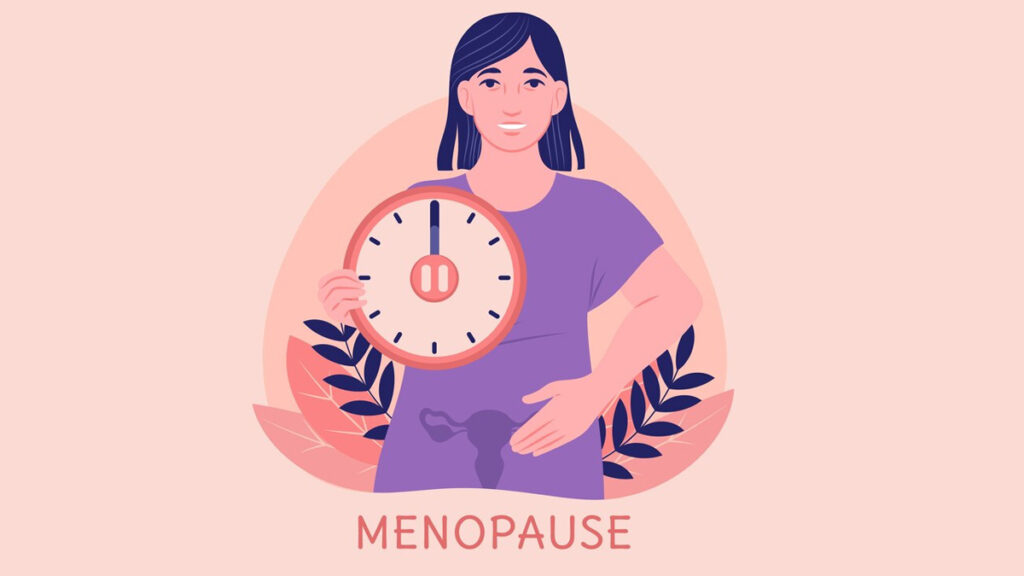What Is Menopause and When Does It Happen?
Menopause is a natural part of aging for women. It marks the end of the reproductive years when a woman no longer has monthly periods. Menopause typically happens when the ovaries stop releasing eggs and hormone levels drop, especially estrogen.
At What Age Does Menopause Start?
Most women begin to experience menopause between the ages of 45 and 55. However, some may notice changes in their 40s, while others could reach menopause later. It officially starts when a woman hasn't had her period for 12 consecutive months.
Why Does Menopause Occur?
Menopause occurs because the ovaries gradually stop producing hormones like estrogen and progesterone, which are essential for reproduction. As these hormone levels decrease, ovulation becomes less frequent until it eventually stops.
What Are the Three Stages of Menopause?
- Perimenopause: This is the transition phase before menopause. It can last several years, during which hormone levels fluctuate and periods become irregular.
- Menopause: This stage is defined as the point when a woman has gone 12 months without a period. It's when the ovaries have stopped functioning.
- Postmenopause: This is the stage after menopause has occurred. Hormone levels remain low and symptoms like hot flashes may lessen over time.
Symptoms and Causes
The symptoms of menopause vary but commonly include:
- Hot flashes
- Night sweats
- Mood changes
- Vaginal dryness
- Trouble sleeping
These symptoms occur due to the decline in estrogen levels. Other causes, such as surgery or certain treatments can also bring on early menopause.
Diagnosis and Tests
Doctors can diagnose menopause based on symptoms, menstrual history and hormone level tests. Blood tests may measure the levels of hormones like follicle-stimulating hormone (FSH) and estrogen.
Management and Treatment
Menopause doesn’t require treatment unless symptoms are severe. Common management options include:
- Hormone replacement therapy (HRT)
- Lifestyle changes like diet and exercise
- Medications for specific symptoms like hot flashes or vaginal dryness
- Natural remedies such as herbal supplements
Can One Get Pregnant During Menopause?
Although fertility decreases during perimenopause, it is still possible to get pregnant. However, after menopause (postmenopause), pregnancy is no longer possible as the ovaries stop releasing eggs.
What Happens After Menopause?
After menopause, the body adapts to the lower hormone levels. Many symptoms improve, but some women may face health risks like osteoporosis or heart disease due to reduced estrogen levels. Regular check-ups and maintaining a healthy lifestyle are crucial during this stage.
what happens to our breasts during menopause
During menopause, hormonal changes can affect the breasts. As estrogen levels drop, breasts may lose fullness, become smaller and feel less firm. Some women may also notice sagging or tenderness. Additionally, the risk of developing breast cysts or lumps can increase but these are often benign. Regular breast exams and mammograms are important to monitor any changes during and after menopause.
Do men go through menopause?
Men don’t go through menopause like women, but they can experience a gradual drop in testosterone, often called andropause or male menopause. This usually happens in their 40s or 50s. Symptoms can include feeling tired, mood changes, lower sex drive and reduced muscle strength. Unlike women, men don’t lose the ability to have children and their hormone levels drop more slowly. Treatment can involve lifestyle changes or in some cases, testosterone therapy.
Menopause is a natural transition for women but with proper management, they can maintain a healthy life. Men, while not experiencing menopause, may face age-related hormonal changes known as andropause.

